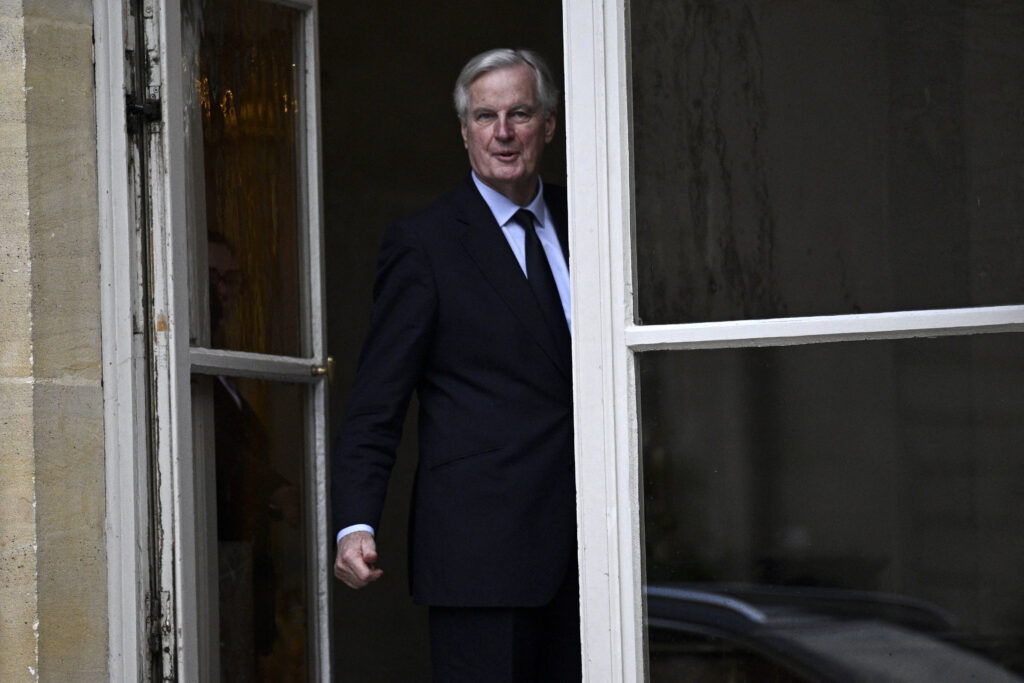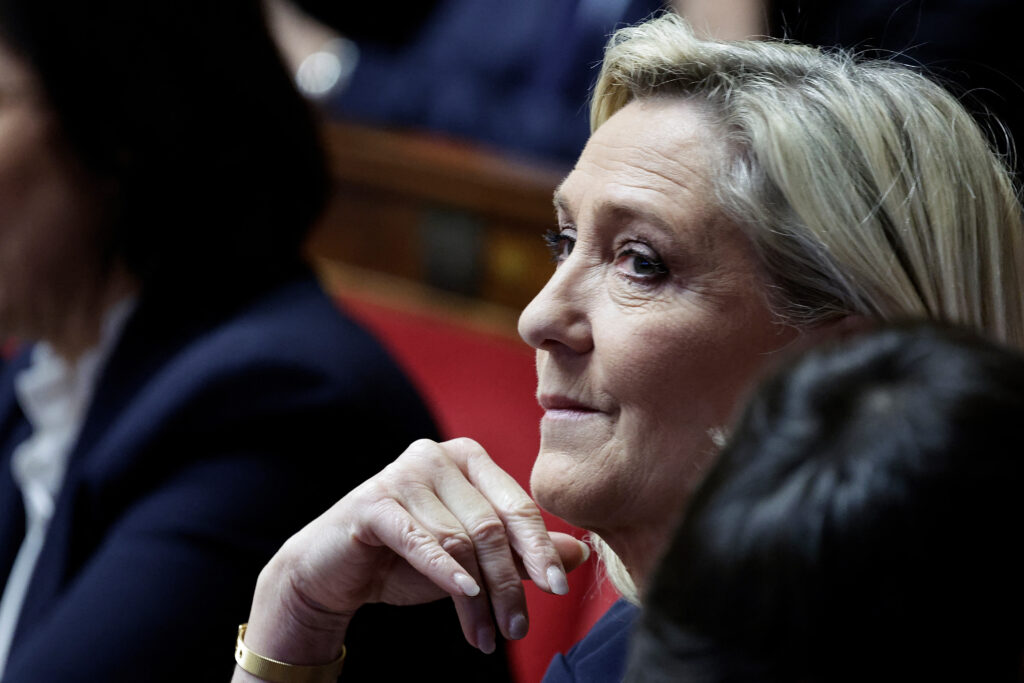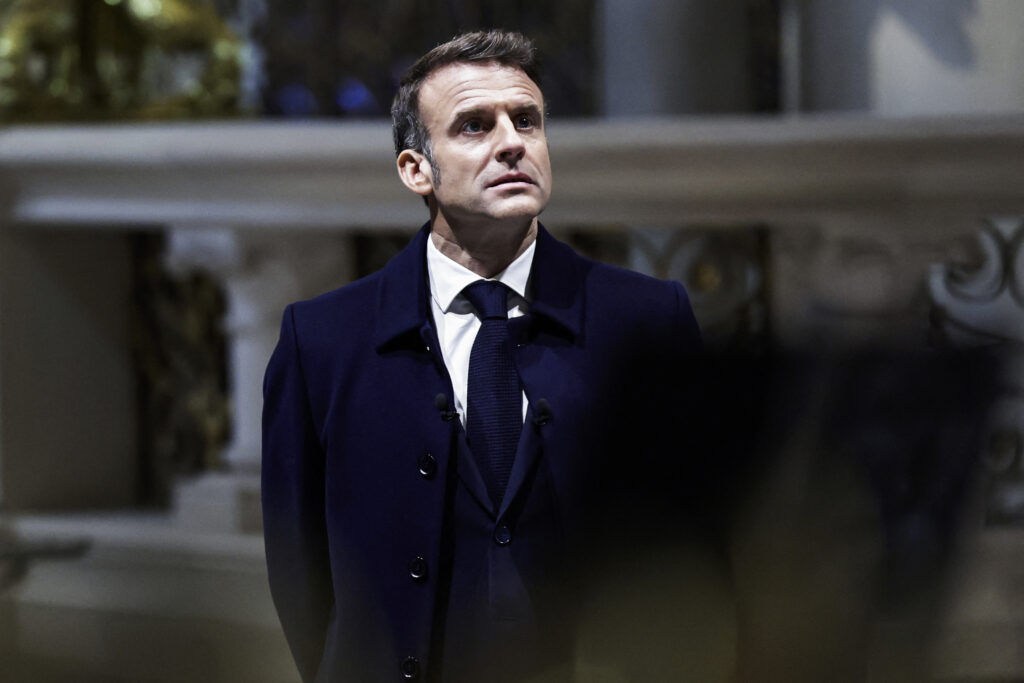Brussels – France is again on the brink of political chaos, with the government of Michel Barnier possibly falling as early as before the end of this week. The radical left and far-right oppositions have already announced that they will vote no confidence in the minority executive, on which the Parliament will vote on Thursday at the latest. At the origin of the clash is the budget law for 2025, with which the transalpine executive is supposed to reduce the out-of-control national deficit in order to fall within the spending parameters set by the EU.
Action of Force
During a heated debate at the Assemblée nationale in the early afternoon today (Dec. 2), French Prime Minister Michel Barnier announced that he will not submit the financial manoeuvre for next year to the deputies for consideration, forcing its approval through the powers granted to him by Article 49.3 of the Constitution.
“We have come to a moment of truth, where everyone must take responsibility,” he said in front of the Chamber, adding that it is now up to the nation’s representatives “to decide whether our country is getting responsible, essential and useful financial texts for our fellow citizens, or whether we are entering uncharted territory.”

Barnier exposes himself to the opposition’s attacks
Article 49.3 of the Fundamental Charter allows the tenant of the Matignon Palace to bypass the House vote on the grounds of urgent national security. But it also exposes him to a vote of no-confidence, as it stipulates that the finance bill is to be considered adopted “unless” at least one-tenth of the members of the House (i.e., 58 deputies) submit, within 24 hours of the activation of the article itself, a motion of censure.
A first motion has been filed late this afternoon from deputies of La France insoumise (LFI), the party of the radical left of Jean-Luc Mélenchon who, with 71 elected members, is the leading force within the Nouveau front populaire (NFP), the alliance of the left put together in a hurry in the run-up to last June’s early elections. A parallel motion is also expected to be filed by the far-right Rassemblement National (RN) of Marine Le Pen and Jordan Bardella.
The NFP’s #MotionDeCensure will provoke Michel Barnier’s departure.
Now more than ever, Emmanuel Macron has two options: appoint a New Popular Front government, or leave and let the people return to polls⤵️ pic.twitter.com/pc6lMDkbiF
– La France Insoumise #NFP at the Assembly (@FiAssemblee) December 2, 2024
The ultranationalist party—allied in Europe to the Patriots of Viktor Orbán and Matteo Salvini—made it known that the parliamentary group will also vote in favour of the Left’s motion, which is expected to be placed on the agenda of the Chamber’s proceedings no earlier than Wednesday afternoon (i.e., as of 48 hours after its presentation). To pass and bring down the Barnier government, any motion must get the support of an absolute majority of the Assemblée members, set at 288.
The political node
The premier ministre had attempted to defeat the threat of no-confidence, agitated in recent weeks by the RN, by including in the budget proposal some of the requests made by Le Pen, with whom he had a telephone exchange before the debate in the House, but failed to get her on his side. Barnier had agreed to eliminate a 5 per cent cut on drug reimbursement programs after having already given in on reducing state funding to health care for undocumented migrants and abandoning previously announced plans to increase taxes on electricity.
But the leader of the transalpine ultra-right has continued to insist on her interlocutor’s untenable demand for the complete indexation of pensions to inflation. The reform of the pension system has been one of the most controversial measures of President Emmanuel Macron‘s second term in office, strongly opposed by both the right and the left of the political spectrum. Barnier’s proposed budget calls for savings of about €60 billion between tax increases and public spending cuts to reduce the deficit/GDP ratio from 6 to 5 per cent.

A project that did not go down well with the lepenists. “Last June, the French wanted to turn the page with Emmanuel Macron,” commented RN President Bardella. “There is no way out for a government that stitches up the thread with Macronism, that refuses to take into account the social emergency at the end of the month, and that ignores the need to revive growth,” he added.
What happens now
Barnier’s triggering of Article 49.3 reflects the weakness of his government, which started among a thousand difficulties in early September after months of head-on confrontation between political forces in a heavily balkanized Parliament. The premier leads a minority executive, having the support of 211 out of 575 deputies in the Assemblée, and is constantly under the crossfire of oppositions from the right (124 elected from the RN and 16 from the UDR) and the left (the NFP parties hold a total of 192 seats).
If Barnier survives the no-confidence vote, his government’s action will be even weaker politically and economically, domestically, Europe-wide and internationally. Above all, France’s deficit is likely to rise further, eroding the confidence of foreign investors and the patience of the EU Commission, which has already opened an excessive deficit infringement proceeding against Paris. The interest on 10-year debt securities has already grown today to 2.89 per cent, bringing the spread with German Bunds to 84 base points, a figure not seen since 2012, at the height of the euro crisis.

If no-confidence wins, Barnier’s government will have been the shortest of the Fifth Republic, and France will enter a new phase of political uncertainty, even more exacerbated than the current one—which already represents a historical first. The only precedent dates back to 1962 when the Assemblée challenged Georges Pompidou. In this case, Macron will be unable to call early elections (the Constitution prevents the dissolution of Parliament more than once every 12 months). He will be forced to appoint a new premier and executive, likely weaker than the current one. As for the 2025 budget, constitutional emergency safeguard mechanisms would likely come into operation to avoid the provisional exercise.
English version by the Translation Service of Withub
![Il presidente di Confindustria, Emanuele Orsini [Bruxelles, 2 ottobre 2024. Foto: Emanuele Bonini]](https://www.eunews.it/wp-content/uploads/2024/10/orsini-241002-350x250.jpeg)





